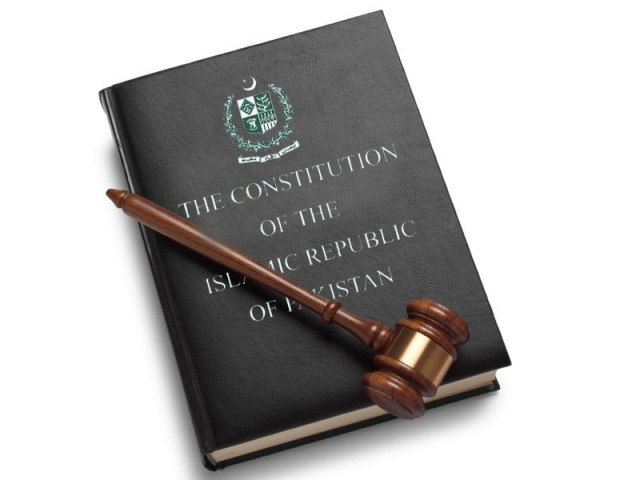Matter of rights : People, not Constitution discriminates on basis of faith
Speakers say all common Pakistanis face discrimination at the hands of people at helms of affairs

CREATIVE COMMON
Yet, on ground, the feeling is otherwise, speakers at a workshop noted. It is actually the people running the affairs of the state who have not embraced a common Pakistani as an equal citizen with certain rights.
These thoughts came in a workshop, engaging on freedom of faith and inter-faith harmony, organised by Pak Institute for Peace Studies (PIPS), on. The workshop was attended by around 20 experts, faith leaders, and development professionals who have worked in the domain of interfaith harmony. The purpose of the discussion was to know how to undertake different activities aimed at enhancing interfaith harmony.
Our judgments are based on law, constitution, not free will: CJP
Zafarullah Khan, expert on constitution affairs, argued it is not that only a non-Muslim is discriminated; many Muslims too are on the periphery, and, like non-Muslims, are vulnerable to exploitation too. Rather than compartmentalising the issue, presenting it as the problem of one or other community, he asked to explore how common Pakistanis have been denied the rights accorded to them as citizens of the land. This, he said, has spawned different types of citizens, ranging from those who live in FATA to those who in Islamabad.
Renowned Islamic scholar Dr Khalid Masud also underscored that acccording to Islamic jurisprudence, non-Muslims Pakistanis are equal citizens of the land and cannot be regarded as “zimmis.”
Meanwhile, Zafarullah Khan, quoting from the constitutional history of Pakistan, underlined that “democracy in Pakistan has promoted inclusion of non-Muslims, whereas dictatorial eras saw exclusion.” This reality calls upon strengthening democratic norms and institutions in the country.
Earlier, PIPS’s project manager Muhammad Ismail Khan, said that a critical issue faced by non-Muslims and Muslims alike is inconsistency in their proper documentation. Non-Muslims contend they are under-reported. In some cases, those on the lower-rung even lack identity documents, thereby excluding them from socio-political processes and increasing their vulnerabilities.
Objective Resolution dividing people on basis of faith: Jahangir
A range of suggestions were discussed, one of which was about economic mainstreaming of non-Muslims. It was suggested that the 5% quota marked for non-Muslims should be filled properly. Civil society should get data on that, and train others on how to get that data, using the Right to Information Act (RTI).
Experts also touched upon the need for interfaith harmony through education reforms. Romana Bashir, peace activist, also talked about segregation in the schools and the discrimination meted to non-Muslims.
Educationist AH Nayyar said that hate speech has created an insecure environment in campus. It has distorted the harmony in educational sector too. Hate speakers are the major player of creating disturbances; this should stop, he said.
Published in The Express Tribune, April 12th, 2018.



















COMMENTS
Comments are moderated and generally will be posted if they are on-topic and not abusive.
For more information, please see our Comments FAQ